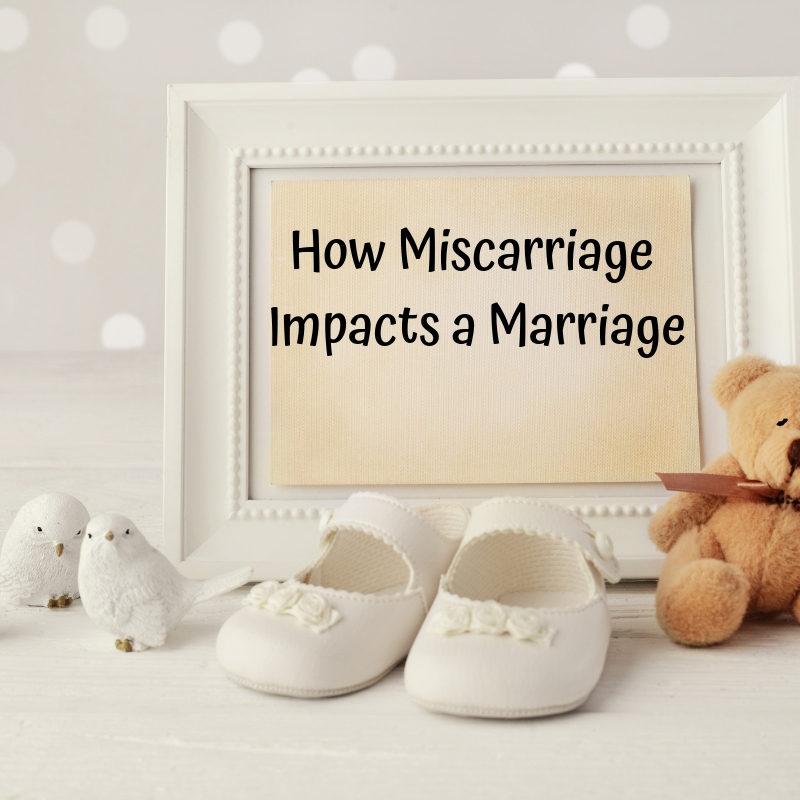
Finding out that you’re expecting a baby is undoubtedly one of the most joyful things in life you will ever experience. You may start imagining what your life is going to look like in a few months and dream about this little one. You may choose names and a nursery theme. But for 1 in 5 women, these dreams will not come to fruition. You discover at some point in your pregnancy that your precious little one is no longer alive. You’ve suffered a miscarriage.
Miscarriages are hell on earth. They are the loss of life, the loss of a dream, and the loss of a family. Experiencing a miscarriage can be extremely hard on a marriage as well. Today, I want to encourage you, if you’ve ever felt the weight of this tremendous loss. You don’t have to walk this path alone.
You May Grieve Differently
There is not a right or wrong way to grieve, but it can be very difficult if you and your spouse grieve differently. Let’s talk about why this may occur.
For women, the bond with baby begins immediately the moment you know they are in your womb. You nurture your baby by taking care of yourself—by not eating certain foods, not consuming alcohol or high levels of caffeine, exercising, and resting. When you lose a child, you may go through not only emotional pain but also physical pain. Everything becomes a reminder that your child is no longer with you. This can lead to Depression, Anxiety, and intense grief. Everything can be a trigger and a reminder that you have suffered a loss.
Men grieve differently than women, but this may be especially evident when a miscarriage occurs. Men often bond with the baby through the relationship. This means, as your belly grows, so does the realization that a child is coming soon. When men attach with the baby, it is often as they can feel the baby move and kick. They may have had a different relationship with your unborn child than you did. And that’s okay.
Women who experience miscarriage may feel they are grieving alone. They may become upset if their husband does not seem as impacted by the loss, or cry as much as they do. Please understand that your husband may grieve differently than you, and it doesn’t mean they are not hurting. They may choose to grieve privately. It isn’t wrong, it’s just different.
Men, remember that your wife is really struggling. Be there to support her, but also make an effort to share your grief with her. Grieving a miscarriage can feel isolating, and she needs to know how you are feeling too.
Intimacy Can Be Hard
Obviously, there is a lot of physical healing that needs to take place after a miscarriage, in addition to emotional healing. This can make intimacy really hard. So how do you work through this?
Remember that intimacy is bonding and connecting. Use intimate time together to love on one another, and take it slow. Physical touch can quickly trigger grief and strong emotions about the miscarriage, so make sure are both communicating about what you need.
Husbands, please especially be aware of the possibility of physical pain with your wife during sex. Be sensitive to what she needs, and understand that sex may have changed. This may be temporary but show patience and grace. Communicate with one another about expectations, needs, and desire. It may take a while to slowly rebuild your sexual relationship to what it once was. Some women may associate sex with losing the child, so make sure you are both talking about this and working through it as a couple.
Communication May Be Difficult
In addition to grieving differently, it may be really hard to communicate with your spouse after a miscarriage. Grief can make people depressed, angry, irritable, and withdrawn. It may be hard for you both to talk to one another when you are both hurting.
Extend one another a lot of grace. You are both heartbroken, so don’t further wound one another with short fuses or anger. Understand that you are both trying to navigate a tragedy, and these are very uncharted waters. Know that you’re both not going to handle your grief perfectly. Show compassion, grace, and forgiveness to one another.
Help each other. There are going to be things that are going to be really hard to do, such as telling family members or friends, recovering from a surgery, or communicating with your boss to take time off. Know that some things will be harder and more triggering than others. Work as a team to accomplish these hard things, and support one another as you struggle. Even going to the grocery store can be awful after a miscarriage (there are baby items in most aisles). It is okay to avoid some things for a while, and it’s okay if one or both of you don’t feel you can handle some tasks. Where one of you may struggle, the other one may feel okay.
Seek Professional Help
If you find yourself really struggling after experiencing a miscarriage, please reach out for help. Sometimes miscarriages can trigger clinical Depression or Anxiety. Don’t suffer alone, and don’t avoid talking about your pain. Therapy can definitely help validate your grief and hurt, as well as give you tools for coping with the loss.
If your marriage is struggling after a miscarriage, make sure you are pursuing marriage therapy. Don’t wait until there is resentment and disconnect between you before you reach out. Therapy can help you both grieve, improve communication, and work to rebuild your marriage to a healthier place. Make sure you are taking the steps necessary to move towards healing together.
*Christy Fogg, MSW, LCSW is a licensed therapist at Journey to Joy Counseling. Christy enjoys doing marriage/couples counseling, individual counseling, premarital counseling. She also provides family counseling, teen and adolescent counseling.
Journey to Joy Counseling serves the Indianapolis area, including Carmel, Fishers, Noblesville, Zionsville, and Westfield.



